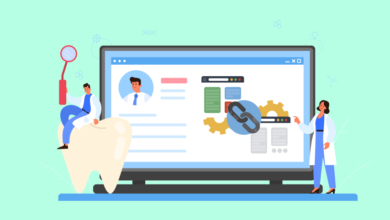Top Personal Assistant Tips for Busy Professionals

Introduction
In today’s fast-paced world, busy professionals often find themselves juggling multiple tasks, meetings, and responsibilities. The demand for efficiency and productivity has never been higher, and that’s where a personal assistant (PA) comes in. Whether you’re managing a team, running a business, or balancing work with personal life, a PA can be an invaluable asset. However, even with the help of a PA, knowing how to leverage their skills effectively is crucial. In this article, we’ll explore the top personal assistant tips that busy professionals can use to streamline their workflow, improve productivity, and maintain a healthy work-life balance.
Understanding the Role of a Personal Assistant
Before diving into the tips, it’s essential to understand the role of a personal assistant. A PA is not just someone who handles your calendar or answers your calls. They are your right-hand person, someone who helps you manage both professional and personal tasks efficiently. From organizing meetings and managing emails to handling travel arrangements and even personal errands, a PA can take on a wide range of responsibilities that free up your time for more strategic tasks.
Effective Communication is Key
One of the most critical aspects of a successful PA relationship is effective communication. Clear and open communication ensures that your PA understands your priorities, preferences, and expectations. Regular check-ins, whether daily or weekly, can help you stay on the same page and address any issues or changes promptly. Make sure your PA knows your communication style—whether you prefer emails, texts, or brief face-to-face meetings—and stick to it to avoid misunderstandings.
Prioritize Tasks with a System
Busy professionals often have a long list of tasks that can be overwhelming. Prioritizing these tasks is crucial to ensure that the most important ones are handled first. Work with your PA to develop a system for prioritizing tasks based on urgency and importance. This could be as simple as a daily to-do list or a more sophisticated project management tool. The key is to ensure that your PA knows which tasks require immediate attention and which can be deferred or delegated.
Time Management and Scheduling
Time management is one of the most valuable skills for any professional, and a PA can play a significant role in helping you master it. Your PA should manage your schedule meticulously, ensuring that there are no conflicts and that you have enough time for each task. Encourage your PA to block out time for focused work, breaks, and personal activities to avoid burnout. Also, make sure your PA schedules regular reviews of your calendar to ensure that you’re not overcommitted.
Delegation: Trust and Empower Your PA
Delegating tasks effectively is one of the most powerful ways to free up your time. However, successful delegation requires trust. You need to trust that your PA can handle the tasks you’re delegating without constant oversight. Start by delegating smaller tasks and gradually increase the complexity as your PA proves their competence. Empower your PA by giving them the authority to make decisions within certain parameters, which will save you from being bogged down by minor issues.
Utilize Technology and Tools
In today’s digital age, there are countless tools and technologies that can help streamline your work processes. From calendar apps and project management software to communication tools and automation platforms, leveraging technology can significantly enhance your productivity. Work with your PA to identify and implement the tools that best suit your needs. Your PA should be proficient in these tools and capable of troubleshooting any issues that arise, allowing you to focus on more strategic tasks.
Set Clear Expectations and Boundaries
Setting clear expectations and boundaries is crucial for a healthy and productive working relationship with your PA. Define the scope of your PA’s responsibilities, their working hours, and how you expect them to handle tasks and communication. It’s also essential to establish boundaries between work and personal time, especially if your PA handles both professional and personal tasks. Clear expectations and boundaries help prevent misunderstandings and ensure that both you and your PA are satisfied with the working arrangement.
Continuous Learning and Development
A good PA should always be looking to improve their skills and knowledge. Encourage your PA to pursue continuous learning, whether through formal training, online courses, or self-study. This could include learning new software, improving time management skills, or even taking courses on leadership and communication. As your PA’s skills grow, so will their ability to support you effectively. Additionally, by investing in your PA’s development, you’re showing that you value their role, which can lead to greater job satisfaction and loyalty.
Foster a Strong Professional Relationship
The relationship between a PA and their employer is unique and should be nurtured. A strong professional relationship is built on mutual respect, trust, and communication. Take the time to get to know your PA, understand their strengths and weaknesses, and provide feedback regularly. Recognize and appreciate their efforts, and be open to their suggestions and ideas. A positive and supportive relationship not only makes the working environment more pleasant but also enhances your PA’s productivity and effectiveness.
Achieving Work-Life Balance
One of the most significant benefits of having a PA is the ability to achieve a better work-life balance. With your PA handling many of your tasks, you can focus on what truly matters, whether it’s spending more time with family, pursuing hobbies, or simply taking a break. Encourage your PA to help you maintain this balance by managing your schedule effectively, reminding you to take breaks, and even handling personal tasks that you don’t have time for. A well-balanced life leads to greater satisfaction and productivity in both personal and professional spheres.
FAQs
What should I look for in a personal assistant? When hiring a PA, look for someone who is highly organized, has excellent communication skills, and can handle multiple tasks simultaneously. It’s also important to find someone who understands your industry and can anticipate your needs.
How can I ensure my PA understands my priorities? Regular communication is key. Hold daily or weekly meetings to discuss your priorities and provide clear instructions on what tasks should be handled first.
What tools can help my PA be more effective? Tools like Google Calendar, Trello, Asana, and Slack can help your PA manage tasks, communicate with you and your team, and organize your schedule more efficiently.
How can I delegate tasks to my PA effectively? Start by delegating smaller tasks and gradually increase the complexity. Trust your PA to handle these tasks without micromanaging, and empower them to make decisions within certain guidelines.
What are some ways to improve my relationship with my PA? Build a relationship based on trust, respect, and open communication. Get to know your PA, provide regular feedback, and appreciate their efforts.
How can a PA help with work-life balance? A PA can manage your schedule, handle tasks, and remind you to take breaks, helping you achieve a healthier balance between work and personal life.
Conclusion
A personal assistant can be a game-changer for busy professionals, providing the support needed to manage a hectic schedule and achieve greater productivity. By following these top tips—fostering effective communication, prioritizing tasks, mastering time management, and more—you can maximize the benefits of having a PA. Remember, the key to a successful PA relationship is trust, communication, and mutual respect. When managed well, a PA can not only help you excel in your professional life but also allow you to enjoy a more balanced and fulfilling personal life.







